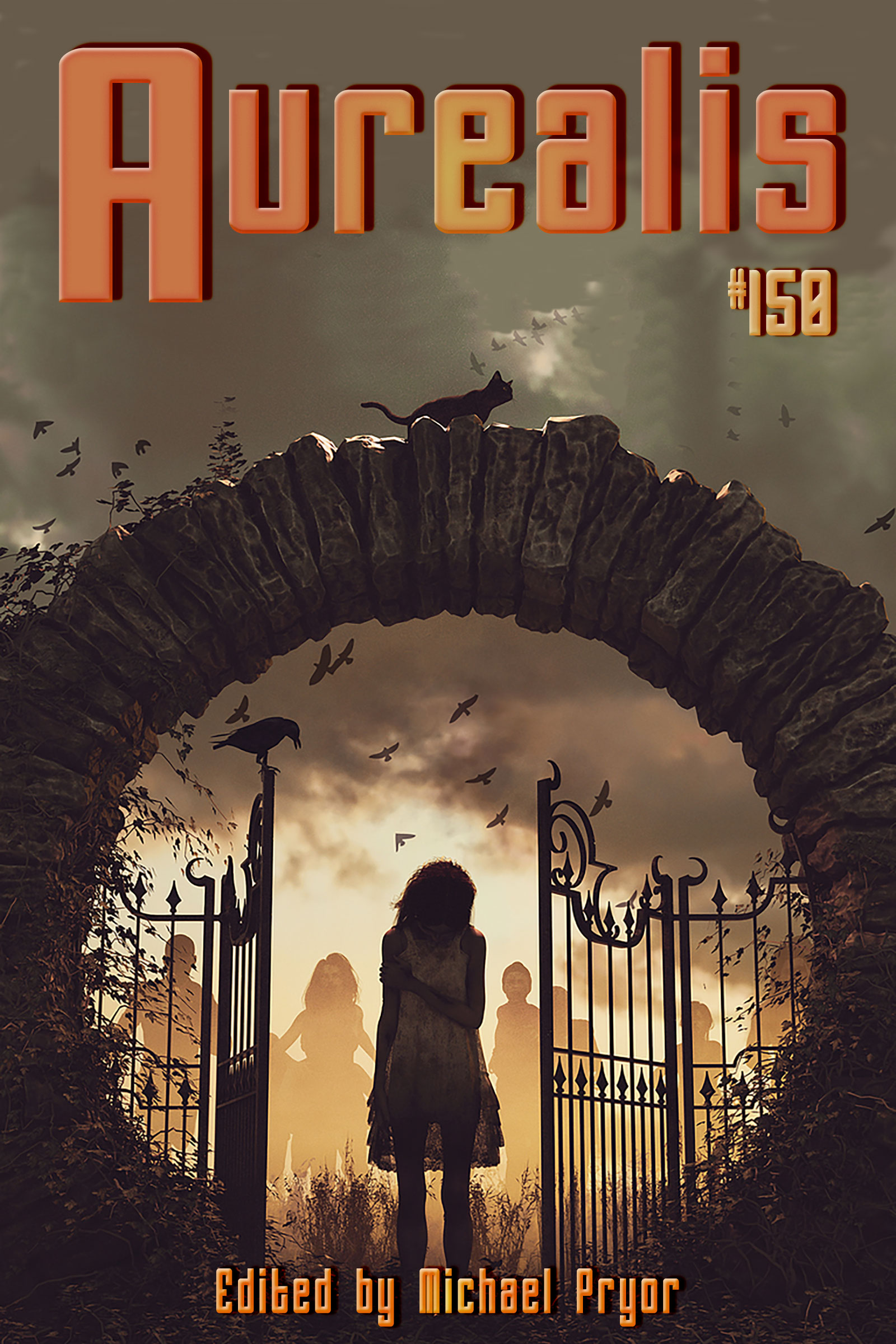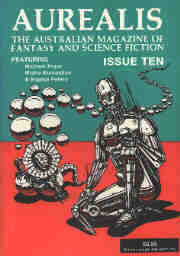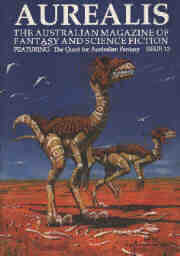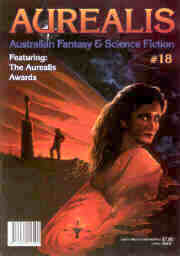Aurealis #150
$3.99
Aurealis #150 features stories from Joseph Townsend, Alastair Brown and Karl El-Koura plus non-fiction from Lynne Green, Gillian Polack and Kris Aston plus our probing and enthusiastic Reviews section and our always stunning internal art. Aurealis: we embrace the universe.
- From the Cloud — Michael Pryor
- The Thrill — JP Townsend
- Remembrance in Skin — Alastair Brown
- The Wormtail Invasion — Karl El-Koura
- Anne McCaffrey: Prolific World-Builder — Lynne Lumsden Green
- The World of The Last Lemurian: A Westralian Romance, by G Firth Scott — Gillian Polack
- The Slow-Burn Brilliance of Midnight Mass — Kris Ashton
Over the years, there have been many attempts by writers and publishers to avoid their books and stories being tagged as science fiction. For a long time, we’ve seen a decided reluctance to be seen to be in the SF camp, no matter how wonderful and welcoming it is. ‘Speculative fiction’ is one of those labels that writers and publishers have used to put distance between their stuff and the riffraff that is SF, and these days it even has a more lofty cousin joining the ranks: ‘literary speculative fiction’, a cousin twice removed from SF, the cousin who doesn’t come to the family reunions.
Lately, we have a newcomer. ‘Dystopian fiction’ as a label has been around for a while but it’s throwing its weight around with renewed vigour to describe all sorts of books with a futuristic setting, often with an overbearing governmental presence. Are these books describing a dystopia? Undoubtedly. Are they fiction? I hope so. Are they science fiction? You’ll find no mention of the genre on covers or in any publicity material. It’s almost as if the publishers are scared of the SF label, of having the book put in a basket labelled ‘low brow, trashy, of no importance, not respectable’.
Cli-fi? Ditto. Slipstream? As above.
Let’s face it, publishers love a label, and they love to carve out a new niche and not have to battle with established work. That’s all well and good. What irks us is the contortions that are gone through to avoid the science fiction label, as if any sniff of SFness about a work is the kiss of death.
Margaret Atwood shuddered at her work being considered part of a genre that was all ‘rockets, chemicals and talking squids in outer space’, even though she has since backed away from that stance. Ian McEwan insisted that his novel Machines Like Me wasn’t science fiction even though it was about artificial intelligence in an alternative reality. Apparently, it was far too respectable to be considered SF.
We pose the question—what about these novels and stories disbars them from being science fiction? Look at any book labelled dystopian fiction, cli-fi, or speculative fiction and ask what disqualifies them from being part of the wonderful wide world of science fiction. If the answer is something along the lines of ‘They can’t be science fiction. They’re good!’ then genre snobbery could be at the root of this backpedalling and reluctance. And the basis of genre snobbery tends to be a complete misunderstanding of, or a lack of knowledge of, the genre in question.
All the best from the cloud!
Michael Pryor
From The Thrill by JP Townsend:
After the mushrooms killed Dover, X took point. They left what remained of Dover’s body and walked back through the tunnels.
The three of them made as little noise as possible. X couldn’t hear the song—Heart and Tork exhibited no symptoms. Dover had heard the song.
From Remembrance in Skin by Alastair Brown:
On the evening of my tenth birthday my father taught me how to write my name, and that was to become the defining moment of my entire life.
From The Wormtail Invasion by Karl El-Koura:
On the night the wormtail aliens returned, a crescent moon hung in the sky like a bright white fingernail. The undiluted starscape had kept me occupied for many nights, drinking warm beer on the roof of our bungalow, staring and counting stars and half-wondering if this would be the night. Then, suddenly, there they were—just like my dad had described, a pulsating amber glow so distinct it couldn’t be mistaken for a star or a meteor.
From Anne McCaffrey: Prolific World-Builder by Lynne Lumsden Green:
No one had told me that women weren’t supposed to write [science fiction] and that few read it.
– Anne McCaffrey quoted in Patterns of the Fantastic
From The World of The Last Lemurian: A Westralian Romance, by G Firth Scott by Gillian Polack:
The opening of a novel is critical to understanding how the world-building is presented. G Firth Scott’s The Last Lemurian: A Westralian Romance novel opens with ‘known’ Australia. A station in South Australia, suffering from drought. The worsening of the relationship with the English owner. The arrival of someone to sort matters out.
This is a novel written during a colonial period and that colonial world is its framework. This is made clear by use of vernacular language and by the narrator’s awareness that he is using dialect and that the dialect is not quite respectable. The Australia of the novel is both colonial and classicist—that is to say, the novel is grounded in the everyday of the 1890s.
From The Slow-Burn Brilliance of Midnight Mass by Kris Ashton:
Vampires and Christianity are entwined thanks largely to Bram Stoker’s Dracula (1897), which introduced the notion of vampirism as demonic evil antithetical to Christian values. Countless books and films have since mined or built upon this bedrock lore, but writer/director Mike Flanagan’s seven-episode TV series Midnight Mass (2021) is much more than just another melding of vampire and Christian mythos. It’s perhaps the first attempt to combine the two mythologies into a single symbiotic organism and, as a by-product, it creates an entertaining and allegorical tale to rival Stoker’s own.





